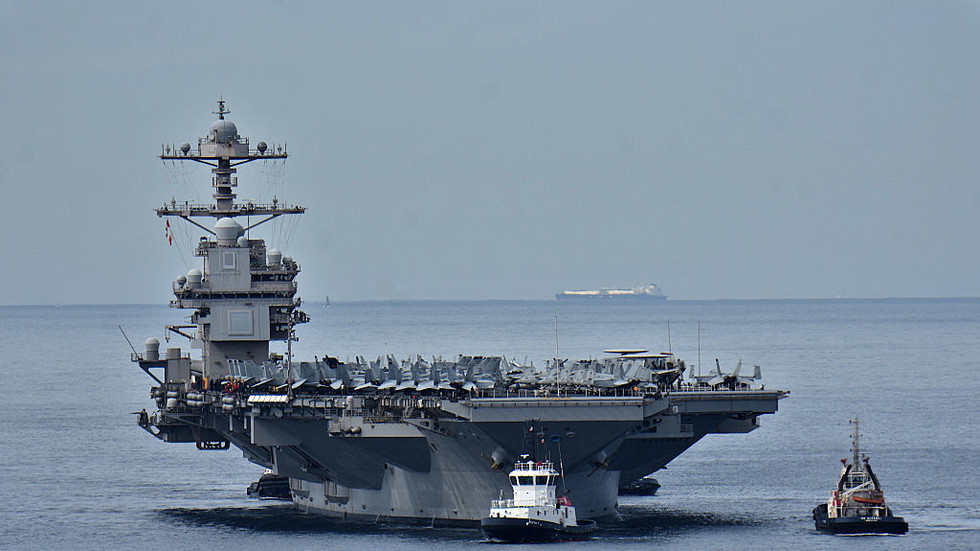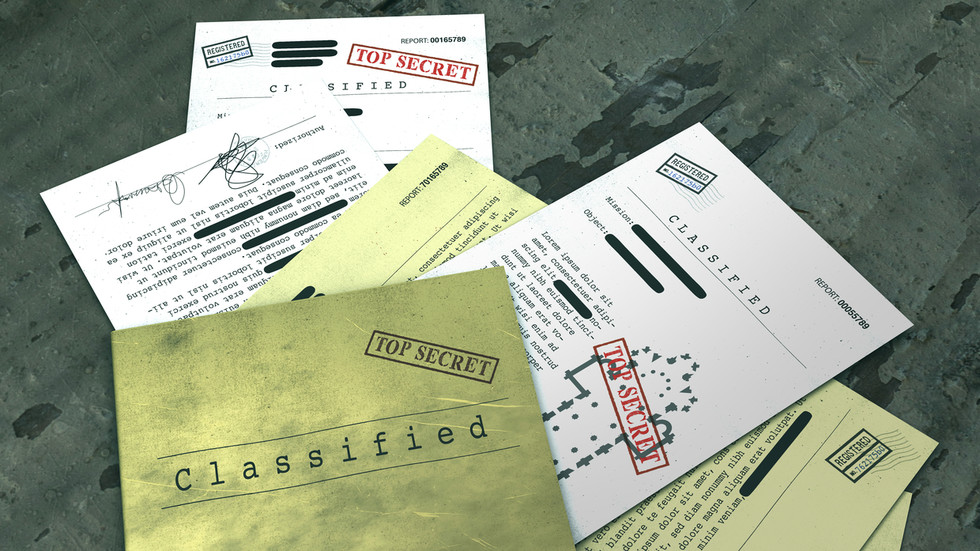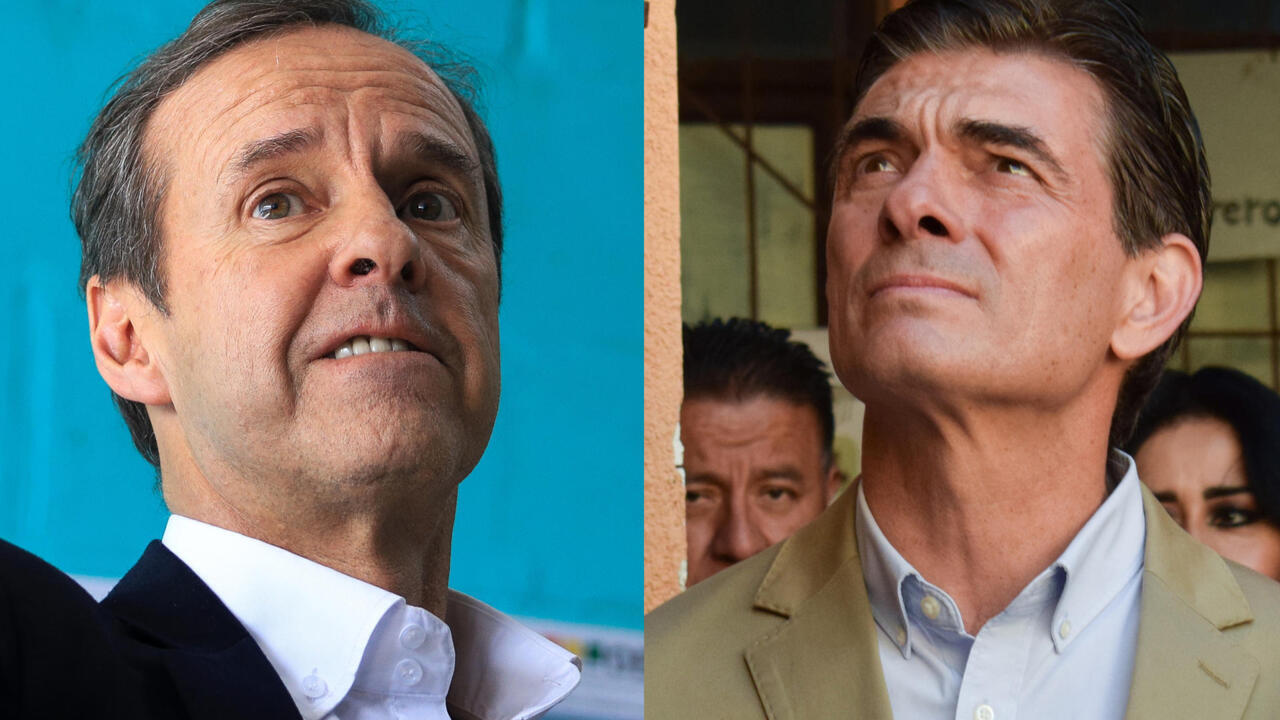The Trump Administration has authorized a series of missile strikes on vessels in the Caribbean, alleged to be carrying drug shipments. 76 people have been killed in some 19 strikes thus far. Trump and his Administration argue the military action is necessary to curb the flow of drugs into the United States. The U.S. government has not yet released any evidence indicating that any of the targeted ships were smuggling drugs.
Secretary of Defense Pete Hegseth, who also answers to the title “Secretary of War” following President Donald Trump’s rebranding of the Defense Department, has so far led the charge in announcing many of the strikes, which he says are “protecting the homeland and killing these cartel terrorists who wish to harm our country and its people.”
Per Hegseth, the U.S. most recently conducted “two lethal kinetic strikes” on “two vessels operated by designated terrorist organizations” in the Caribbean.
Announcing the Nov. 9 military action via social media, Hegseth said: “These vessels were known by our intelligence to be associated with illicit narcotics smuggling, were carrying narcotics, and were transiting along a known narco-trafficking transit route in the Eastern Pacific.”
He went on to add that the strikes were “conducted in international waters” and three male “narco-terrorists were aboard each vessel,” with all six confirmed as killed.
In September, the U.S. targeted vessels that Trump said were manned by members of the Venezuelan cartel Tren De Aragua, which he claims is under the control of Venezuela's Maduro. (A claim reportedly at odds with an assessment by U.S. analysts.) Since then, the U.S. military has been placing warships, fighter jets, marines, and drones, along with other surveillance and intelligence-gathering equipment, in the Caribbean Sea. The Navy’s most advanced aircraft carrier has also arrived in the Latin American region. Venezuela is now building up its own defense plan, should the U.S. strike. But Trump has expressed doubts that the U.S. will engage in a full-out war with the South American country.
“I doubt it. I don't think so. But they've been treating us very badly,” Trump told CBS' 60 Minutes in early November, when asked if the U.S. was heading to war with Venezuela. He went on to claim that "every single boat that you see that's shot down kills 25,000 on drugs and destroys families all over our country."
When asked if the U.S. is planning any on-land strikes, Trump didn’t rule out the possibility, instead saying: "I wouldn't be inclined to say that I would do that... I'm not gonna tell you what I'm gonna do with Venezuela, if I was gonna do it, or if I wasn't going to do it."
Venezuela's President Nicolás Maduro, meanwhile, has accused the U.S. of "fabricating a new war."

Read More: Trump Wants Venezuela’s Maduro Out. Will He Pull the Trigger?
Trump’s policy on targeting alleged drug vessels has drawn plenty of criticism and concern, even from within his own party.
Republican Sen. Todd Young of Indiana has said he is "troubled by many aspects and assumptions of this operation and believe it is at odds with the majority of Americans who want the U.S. military less entangled in international conflicts." Explaining his concerns, he went on to add that "the strategic objective of militarizing a ‘War on Drugs’ is unclear at best and, while not currently desired or contemplated, these operations could conceivably lead to direct military conflict with Venezuela or even operations inside the United States."
Despite the growing concern, in early November, the Senate voted down a measure that would have required congressional approval for military action by Trump against Venezuela.
Elsewhere, the United Nations’ high commissioner for human rights, Volker Türk, has condemned the boat strikes.
“These attacks—and their mounting human cost—are unacceptable. The U.S. must halt such attacks and take all measures necessary to prevent the extrajudicial killing of people aboard these boats, whatever the criminal conduct alleged against them,” said Türk on Oct. 31, adding that the strikes have “no justification in international law.”
The Trump Administration’s actions are also sparking concern and condemnation further afield and some countries have now suspended—or curtailed—part of their intelligence sharing with the U.S.
Colombia
Colombian President Gustavo Petro issued a statement on Tuesday, stating his intention to direct all public security forces to “suspend the sending of communications and other dealings with U.S. security agencies” in response to the strikes.
“Such a measure will be maintained as long as the missile attack on boats in the Caribbean persists,” said Petro. “The fight against drugs must be subordinated to the human rights of the Caribbean people.”
TIME has reached out to Petro’s office for further comment and details on the order.
Colombia shares a border with Venezuela, and Petro has been vocal in his disapproval of the U.S. military's strikes against vessels in the Caribbean and the U.S.’ growing presence in those waters.
The two Presidents have engaged in a bitter back-and-forth.
In October, Trump announced that the U.S. will cut aid to Colombia, arguing that Petro “does nothing to stop” drug production. Speaking about Colombia to reporters aboard Air Force One, Trump doubled down, claiming: “They don't have a fight against drugs—they make drugs.” He has also called Petro an "illegal drug leader.”
Colombia recalled its U.S. ambassador amid the raised tensions.
In addition to criticising the U.S.’ actions in the Caribbean Sea, Petro has also condemned the Trump Administration’s crackdown on immigration and the ICE raids, accusing Trump of “unleashing an ethnic war in the USA.”
When Hegseth in October announced that the U.S. had struck a vessel associated with a Colombian rebel group, Petro accused the U.S. of killing a Colombian fisherman who “had no ties to the drug trade.”
The Colombian President met with the family of the man last week and later told the public: “They are neither terrorists nor drug traffickers. [Secretary of State Marco] Rubio and Trump are completely wrong.”
The Treasury Department has announced sanctions on Petro and “his support network,” accusing the Colombian leader of complicity in Colombia’s drug trade.
“President Petro has allowed drug cartels to flourish and refused to stop this activity. Today, President Trump is taking strong action to protect our nation and make clear that we will not tolerate the trafficking of drugs into our nation,” said Treasury Secretary Scott Bessent on Oct. 24.
United Kingdom
One of the closest allies of the U.S., the U.K. has reportedly suspended sharing some intelligence with the Pentagon due to concern over the boat strikes in the Caribbean, according to CNN.
The U.K does not want to be complicit in U.S. military strikes and believes the attacks are illegal, a source familiar with the situation is cited as telling the publication. The pause in intelligence, which has usually been shared with Florida’s Joint Interagency Task Force South, reportedly began over a month ago.
The U.K. has a number of overseas territories in the Caribbean where it houses bases of intelligence gathering.
In response to a request for comment from TIME, a U.K. government spokesperson said on Wednesday: “It is our longstanding policy to not comment on intelligence matters.”
They went on to say that the “U.S. is our closest ally on security and intelligence. We continue to work together to uphold global peace and security, defend freedom of navigation, and respond to emerging threats.”
A War Department official from the Pentagon similarly told TIME: “We don’t discuss intelligence matters.”
Another key U.S. ally—Canada—is also reportedly distancing itself from the boat strikes, according to the same CNN report. Canada intends to continue its partnership with the Coast Guard (Operation Caribbean), but the country has made clear to the U.S. that it does not want its intelligence being used to help target boats for deadly strikes, a source is quoted as telling CNN.
TIME has reached out to Canada’s Department of National Defence for comment.
The Netherlands
While not explicitly related to the strikes conducted in the Caribbean, Dutch intelligence officials have previously said they are restricting sharing information with U.S. counterparts over concerns of the “politicization of intelligence,” amid fears that such intelligence could be used in relation to “human rights violations.”
“Sometimes you have to think on a case‑by‑case basis: can I still share this information or not?" said Erik Akerboom—director-general of the AIVD, the General Intelligence and Security Service of the Netherlands—in an interview with Dutch outlet De Volkskrant on Oct. 18. “We cannot say what we do or do not share. But we are more critical.”











 English (US) ·
English (US) ·